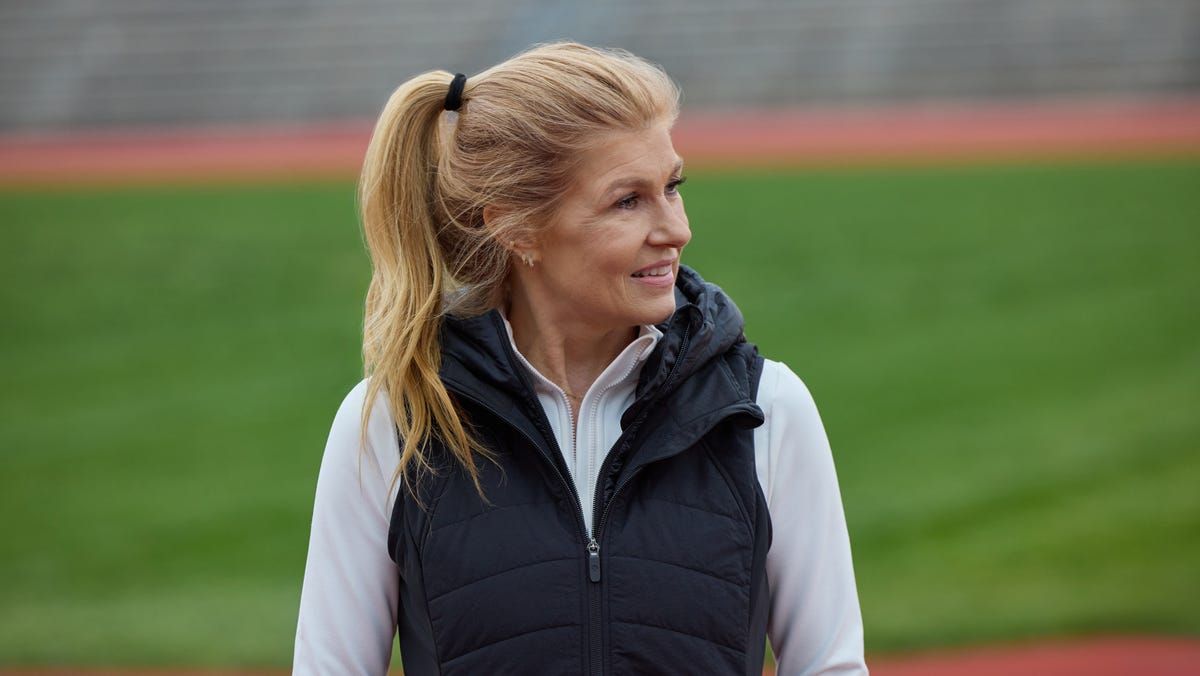Mother’s Day: Easy ways to make your mom feel special
Here are some easy ways to celebrate your mom this Mother’s Day.
Problem Solved
For Connie Britton, mum’s frequently not the word; it’s the role.
Supportive Tami Taylor on NBC’s “Friday Night Lights,” singing Rayna Jaymes on ABC’s “Nashville,” tech CFO Nicole Mossbacher on HBO’s “The White Lotus,” and more recently, mom from beyond Elizabeth in Netflix film “The Life List.” Up next, she’ll appear in the Amazon Prime comedy “Overcompensating,” debuting May 15, as the mom of a closeted college student (Benito Skinner).
“I just kind of realized recently, I’m like, ‘Oh gosh, I’ve played a lot of moms. What’s that about?” Britton says with a laugh. The Emmy-nominated actress, 58, says she received an offer for her first mom role in her early 30s. She remembers being “so horrified at the idea, like, ‘How could I possibly be old enough to be playing a mom?’ Now, I love playing moms because every single mom I play, I try to understand each one as the unique human being that they are.”
In real life, Britton is a mother to her teenage son Yoby, whom she adopted from Ethiopia in 2011. The following year, she moved to Nashville (where she didn’t know anyone) for the ABC drama and worked 16- to 18-hour days. Her experience as a single parent inspired Britton to create “The Motherhood,” a Hallmark Channel reality series enlisting the help of experts to make life easier for single moms, debuting May 5 (Mondays, 8 ET/PT).
Britton describes “The Motherhood” in the show’s premiere as “a community of single moms created to provide support to one another when you need it the most.” Britton helped when a friend who worked in costumes on “Nashville,” a single mom to four kids, forgot to give her son lunch money. The actress dropped off money at his school.
“And it was in that moment that I thought, ‘Gosh, it would be so great to create some kind of resource and community for single moms, where people could volunteer and just one day a week go grocery shopping for them or take care of the kids, or just do something that would give that mom a little bit of support and a little bit of help,’” she says.
Over six hourlong episodes, Destini Ann Davis offers women parenting advice, Taryn Hicks elevates their style and Angela Rose makes their homes more beautiful and functional. (If the premise seems a little familiar, the show is produced by Scout Productions, also behind Netflix’s “Queer Eye.”)
“The thing is – and this is the point of my show – you can’t just do it on your own,” Britton says. Single moms need community, she says, a support system. “I adopted my son and I’ve always been kind of an independent gal. So I sort of thought, ‘I got this,’ and I feel like I have a lot of maternal instincts, all the things. But when I suddenly was really the mother of an infant child and I was all by myself, it was quite an eye-opening experience.
“The feeling of being alone in it was really profound,” she says. “And let me be clear, this is with me having the resources to be able to afford help. That, to me, is just an enormous privilege and blessing, and also, it doesn’t necessarily fill all the void. There’s still a lot of feeling of, ‘What am I supposed to do?’ and ‘I don’t know how to do this,’ which I think, by the way, that resonates for all parents.”
The series premiere introduces viewers to Tasha, a professor with a 5-year-old daughter, Busy. Tasha’s living room is overrun with her daughter’s toys, and Tasha admits she “realized I don’t see myself in this house anymore.” She needs to create a space for herself in her home and reconnect to her identity outside of being a mom.
An “overwhelmed and overextended” Rochelle is the focus of Episode 2. She has two young sons, Jacob and Owen, and works several jobs to support her family. Rochelle manages a foundation and is a parent aide for foster care. She has also started a T-shirt design company and balloon decorating business to save money for her sons’ college. Rochelle tells Connie, “I want my boys to see how resilient mommies can be.”
Britton says she observed that each of the single moms featured “had real tangible change in their lives, from the things that they learned about themselves and the support that they were able to put in and the idea that they could actually ask for help.”
One participant got a job after her episode, Britton says, and another went on a date.
“All of these things where it’s like, they allowed themselves to be courageous enough to open up to the community that we were trying to provide and create,” she says. “And they have now run with that.”

Leave a Reply